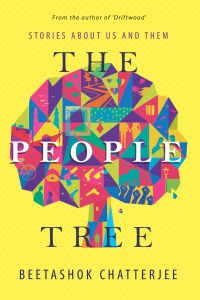
Story 1: The Little Oxford Dictionary
15th January 1985
It was a cold, cold night that found me at the Jalandhar Cantonment Railway Station, waiting to board a train for Delhi. There I was, huddled in the Movement Control Office waiting for the train to arrive, shivering in my thin jacket and digging my hands deep into its pockets, trying to keep them warm. Not used to this cold, you see. Bangalore doesn’t freeze like this.
You may ask what I, Raghuram Kamat, a civilian and a Bangalorean all my life, a ‘Madrasi’ to any North Indian, was doing in the MCO at some railway station in Punjab on a cold winter night. Well, my brother was an Army doctor posted at the Jalandhar Military Hospital at that time. I had travelled to Punjab and stayed with him for a few days; it was not often that we got to meet and spend time with each other. Dropping me at the station for my journey home, he couldn’t hang around to see me board the train, as he had to rush back to the hospital before the night curfew commenced. Rules are rules in the Army.
You may recall that in the ’80s Punjab was going through a very turbulent period in its history. It was the time of the Sikh militant insurgency. The Khalistan movement, Bhindranwale, Operation Bluestar, Indira Gandhi’s assassination and the Delhi massacre of Sikhs that followed...remember? Punjab was a dangerous place to be in. Police, army, militants, civilians...a lot of people were killing or getting killed. Not an ideal situation for an outsider like me who would stick out like a sore thumb.
So there I was at the railway station on a freezing night. Wrong place, wrong time? Dead right, pun not intended.
The station was deserted and mist was settling in. The Junior Commissioned Officer from the MCO, a strapping young man who had been appointed to take care of me till I got on the train, advised me to stay where I was and not wander around on the platform. As he succinctly put it, ‘Aatankvaadi kahin se bhi aa sakte hain’. I heeded his advice.
A raucous, metallic shriek heralded the arrival of the train from Amritsar—on schedule. The passenger coaches screeched to a halt, veiled in a light January mist. A few passengers got off the train and an equally small number got on—they seemed to materialize from nowhere. The JCO accompanied me to my compartment, S4, saw me off and quickly went back to the safety of his cabin— men in uniform were especially vulnerable.
S4 was supposed to be a reserved sleeper compartment, but to my annoyance I found my lower berth occupied by three sitting turbaned men, wrapped in blankets. Just their eyes were showing. Large, silent men with perhaps a hint of menace. I stood silently for a few seconds, hoping against hope that they would vacate what was supposedly my reserved berth. They ignored me while I stood there. Finally, I summoned the courage, cleared my throat and told them, ‘Yeh mera berth hai, jee’. None of them bothered to acknowledge my presence.
Another uncomfortable silence. I continued to stand there, not sure what I should do next.
Finally, one of them indicated the opposite lower
berth and spoke in a low voice, ‘Udhar baitho’. You don’t mess with men like these. I sat down without a murmur on the berth indicated. It was stuffy as all the windows were shut against the cold and the body odour from the three unwashed gents did not add to my comfort. With a sigh, I took out a book from the bag on my lap, located the page I had marked and started reading.
The train started with a jerk and a squeal, and gradually gathered momentum. The lights of the railway platform gave way to an inky darkness. A sick man’s cough from a nearby berth sounded strident. The three men would now and then glance at me, but remained silent except for the occasional whispers amongst themselves. I chose to ignore them and kept my eyes on the book. Soon I had got used to the relentless whining and groaning of the carriage. Its rocking back and forth motion made me sleepy.
I must have dozed off while reading, for I woke up with a start as the train jerked to a halt at some station. I didn’t know which one, but involuntarily I glanced at my wristwatch. The time was 12.40 am. Yes, I remember the time exactly. My bag had fallen on the floor along with the book that I was reading, which I bent down to pick up along with my bag.
At the same instant one of the three sitting opposite me reached down to pick up something else that had fallen out of my bag; something that had escaped my notice.
It was my pocket Little Oxford Dictionary, which I always carried with me those days. I silently held out my hand, but the man who had picked it up did not hand it over immediately. To my surprise and alarm, he sat back in his seat and started looking at it intently, ignoring me. He opened it and scrutinized the first page for almost a minute. He then looked up at me. All I could see of his face were his eyes. There was a strange expression in them, as if he wanted to question and communicate something to me at the same time.
Finally, he leant forward to hand the book back. As he did so, he muttered softly into the blanket still covering most of his face, ‘Thambi, yerangi po!’
To read more, please buy the book.
About the Author







Comments